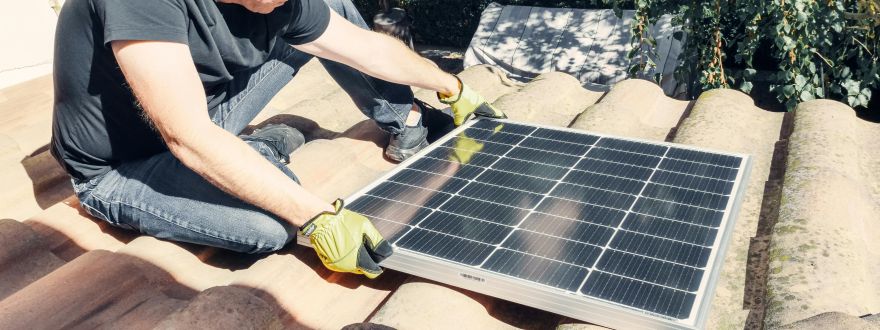
It’s all the new rage – it’s a natural way of producing energy, it helps to lower your electric bill, and it’s a way to take part in reducing your carbon footprint – but what about homeowners’ insurance? How does the installation of solar panels affect my insurance, and more importantly will it make you pay more for your homeowners’ insurance? That’s the big question we’ll tackle in today’s blog!
They’re attached to the roof.
The first, and most obvious concern that insurance companies have with solar panels is the fact that most of the time they are installed directly onto a home’s roof. This means additional holes are drilled into your roof to secure the panels which creates more openings and opportunities for water to enter the home and cause damage. Your roof is the first layer of protection your home has to fight the outside elements and is a big part of how your insurance rate is determined in the first place. It’s common knowledge that the shape of the roof, the material of the roof, and the age of the roof are important factors to your insurance company – but with the introduction of solar panels that adds an entirely new element to the calculation. The practice of installing solar panels onto homes is still a new concept and still well within its early stages. This means there isn’t a whole lot of data available to an insurance company when it comes to how well they hold up over time and how they may impact the longevity of the roofing system. As the years go on, more data will become available and eventually there will be enough available for insurance companies to be able to determine what, if any, effect solar panels have on the longevity of the roof as well as how it may or may not play into a claim.
They’re expensive to replace.
The second, somewhat obvious concern is the cost of the solar panels themselves. Even though solar panels usually come with warranties, the fact of the matter is that your homeowners’ insurance may end up being on the hook for replacing them in certain situations. If lightning hits your house causing it to be destroyed, it’s highly likely that your insurance carrier will be on the hook to pay for the house AND those solar panels. Since solar panels aren’t cheap, this is just another expensive item that must be factored in and rated for accordingly.
RELATED: Florida's chief financial officer warns solar panels can worsen insurance costs
They create another potential liability claim.
The third, least obvious concern to your homeowners’ insurance company is with regards to the net metering agreement that many solar panel users enter into with their local electricity provider (aka FPL, Duke energy, TECO, etc.). A net metering agreement is what dictates the terms of how your excess solar power is distributed and sold back to them. Many of these agreements include clauses that place the liability associated with the power returned by the panels onto you. If the electric panels were to malfunction and cause damage to the power grid or something else, you could be held liable for those damages. If you are held liable, it’s entirely possible that your insurance carrier could be the one footing the bill (and it will probably be an expensive one).
So, what does this mean? Will solar panels affect my insurance or not?
Maybe it will and maybe it won’t. Unfortunately, there is no exact answer since every insurance carrier treats solar panels differently. If allowed by your insurance company, the installation of solar panels will cause your premium to go up since your coverage limits will need to be increased to account for the cost of the panels. If it’s not allowed by your insurance company, then they may decide to non-renew or cancel your insurance. If they do this, you will need to secure new coverage through a carrier that does allow the panels. Since solar panels aren’t accepted by every carrier, this means you will have less options to choose from in terms of an insurance quote which may lead to you paying more with a carrier who will accept it. We encourage you to contact your homeowners insurance carrier and ask them about their stance on solar panels so you can prepare accordingly.
RELATED: Home insurers pull the plug over solar panels
If you are thinking about installing solar panels or have already done so and want a quote to protect them along with your home, give us a call today. Our office works with many insurance companies, including quite a few that offer coverage for solar panels. Give our office a call at 941-244-2760 or request a quote from our website now.
Thank You,
Evolve Insurance Agency
Photo courtesy of Kindel Media via Pexels.com
